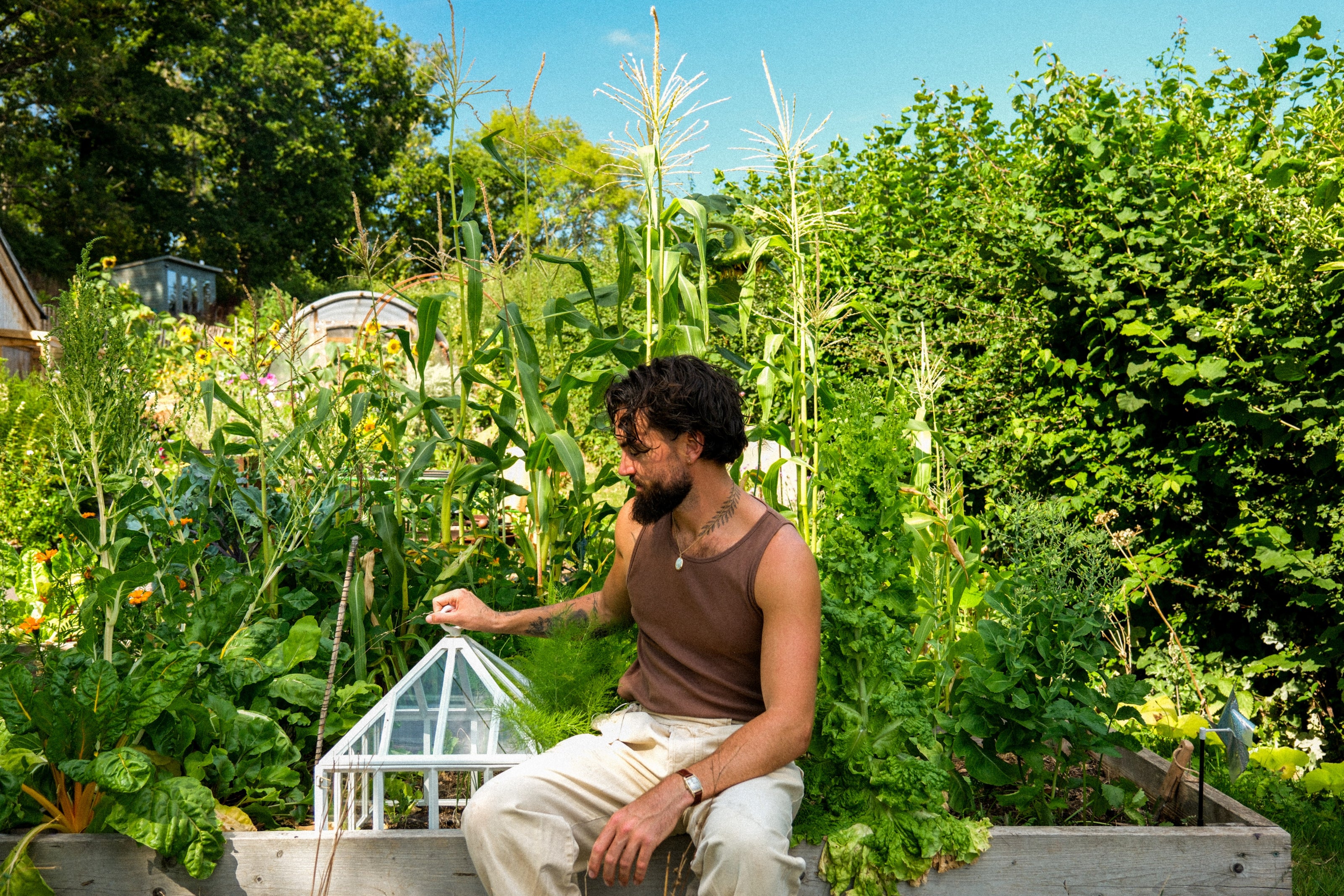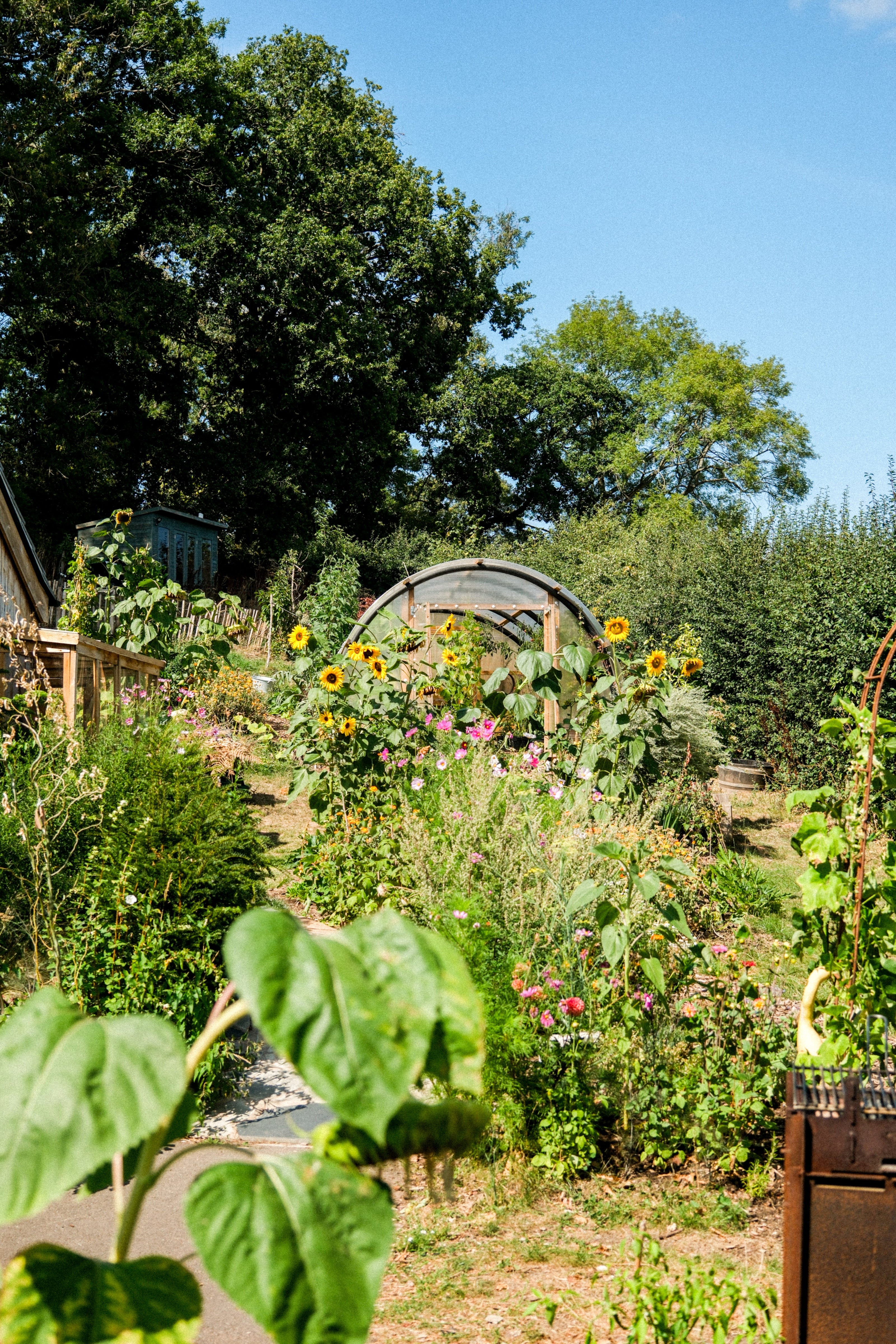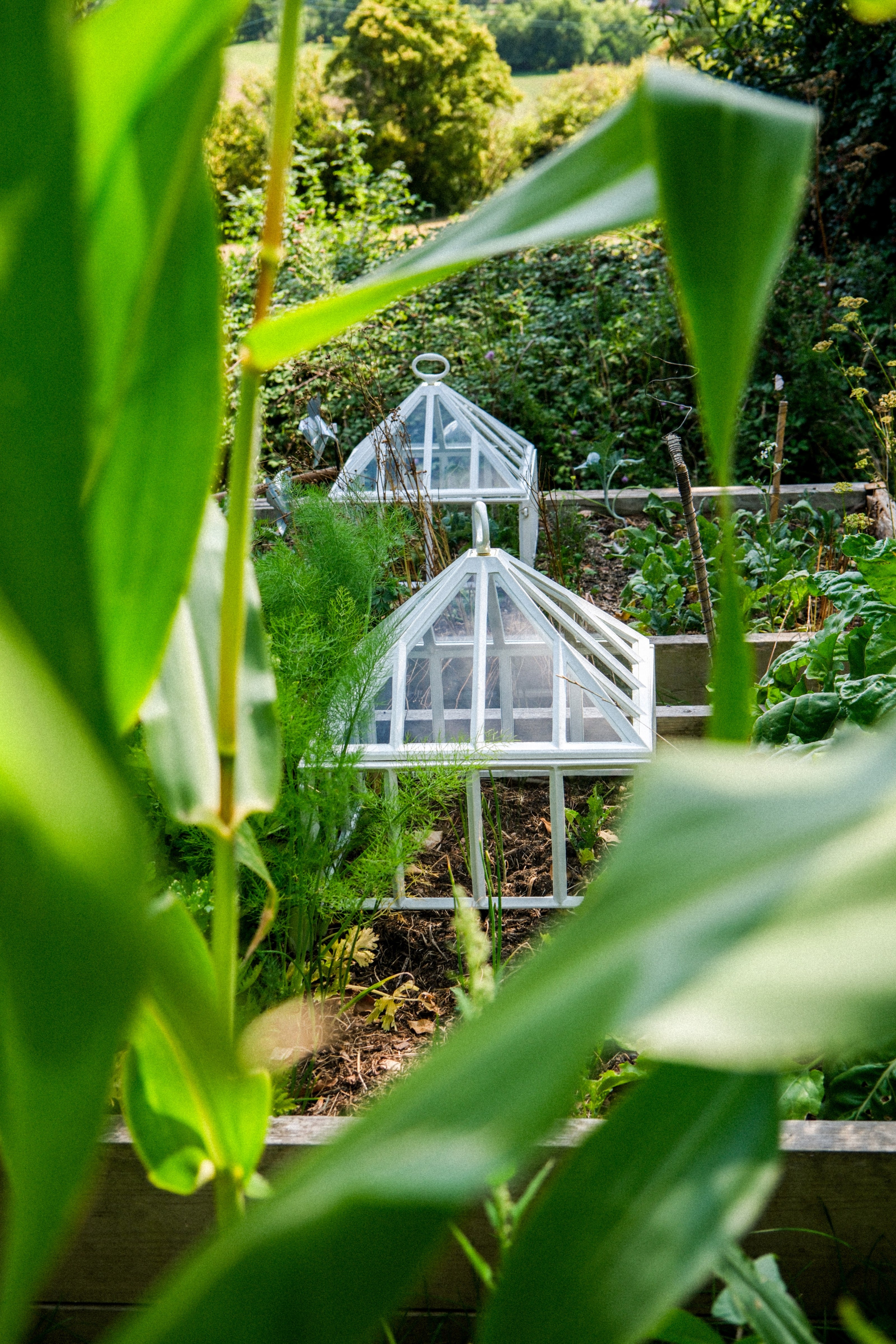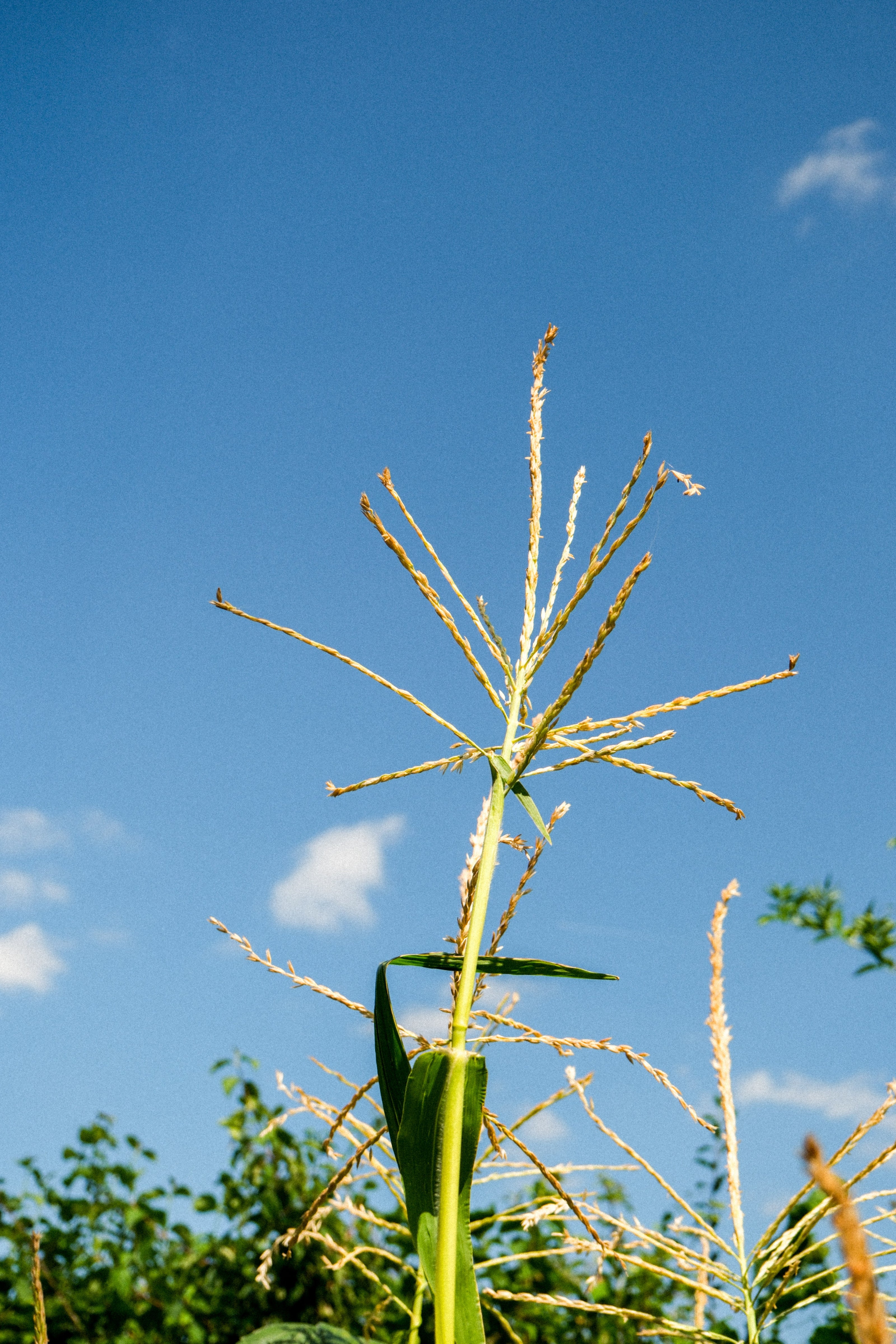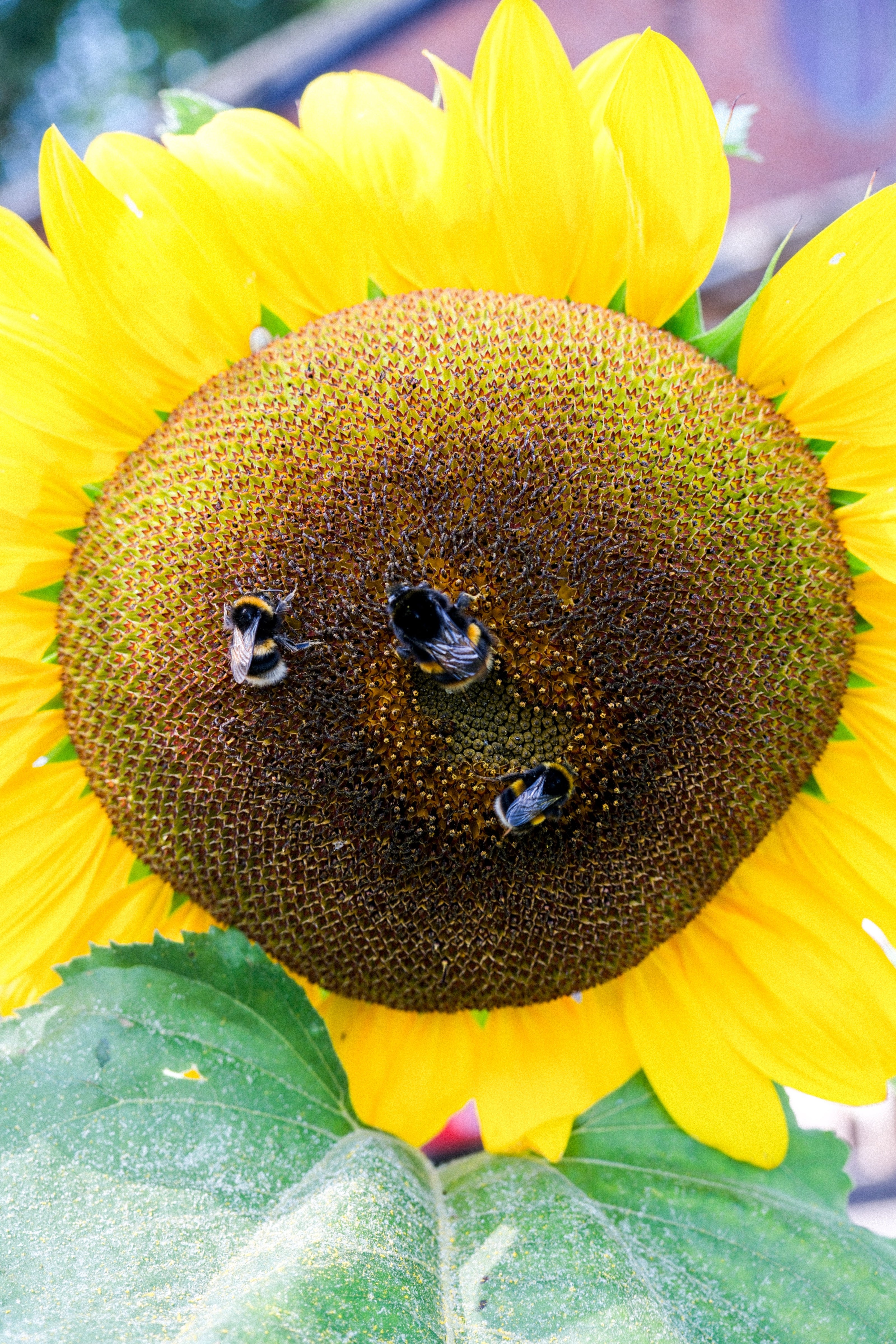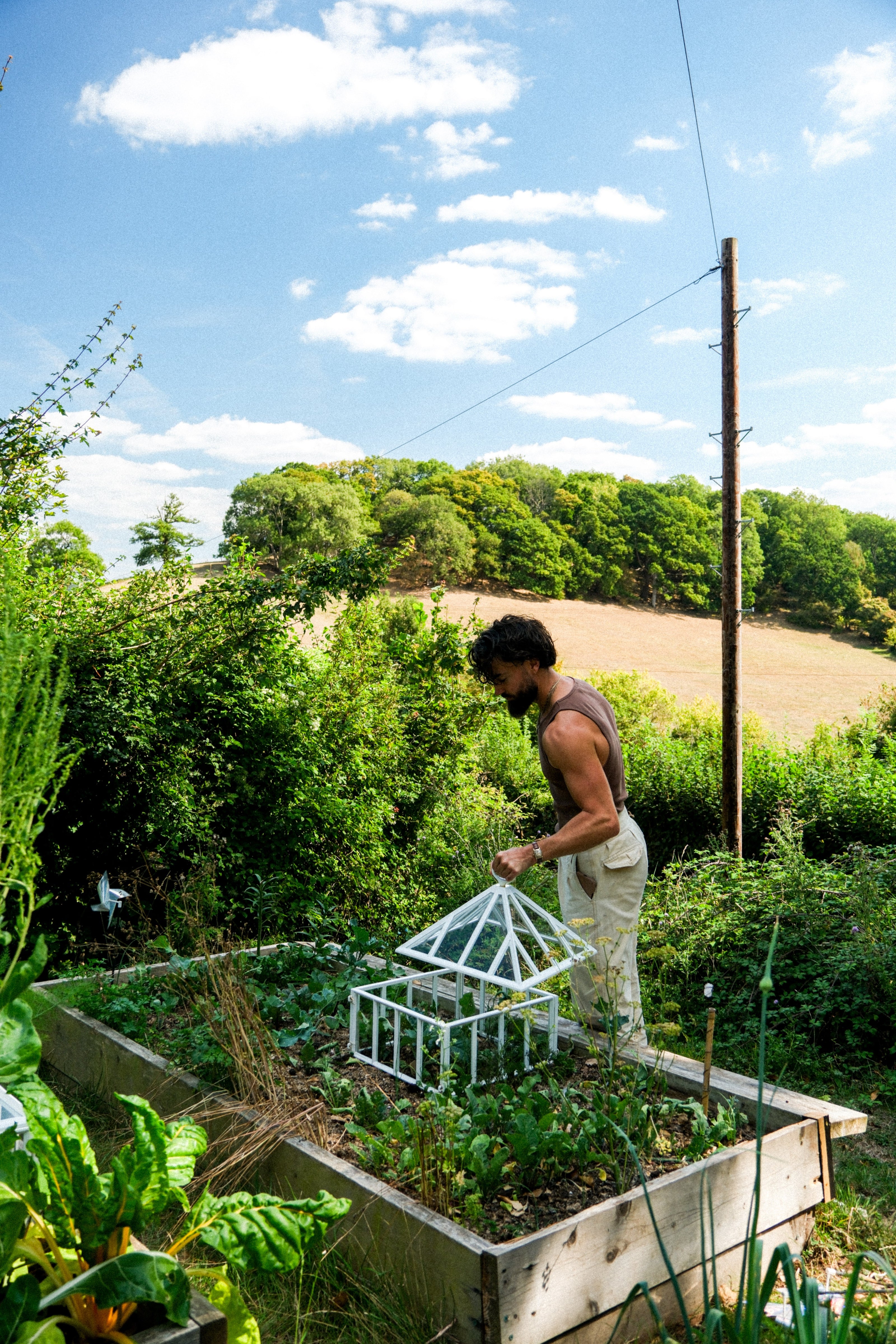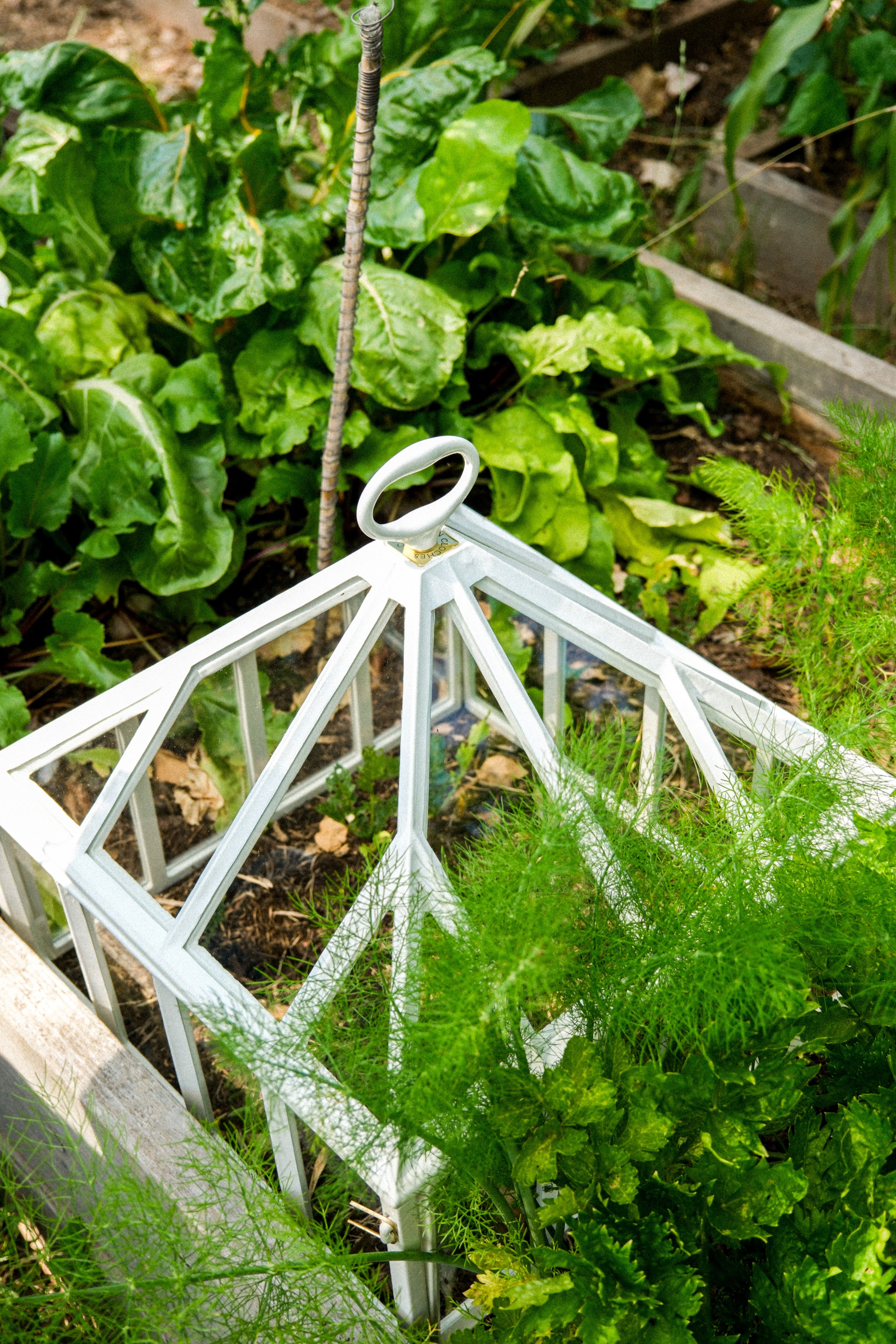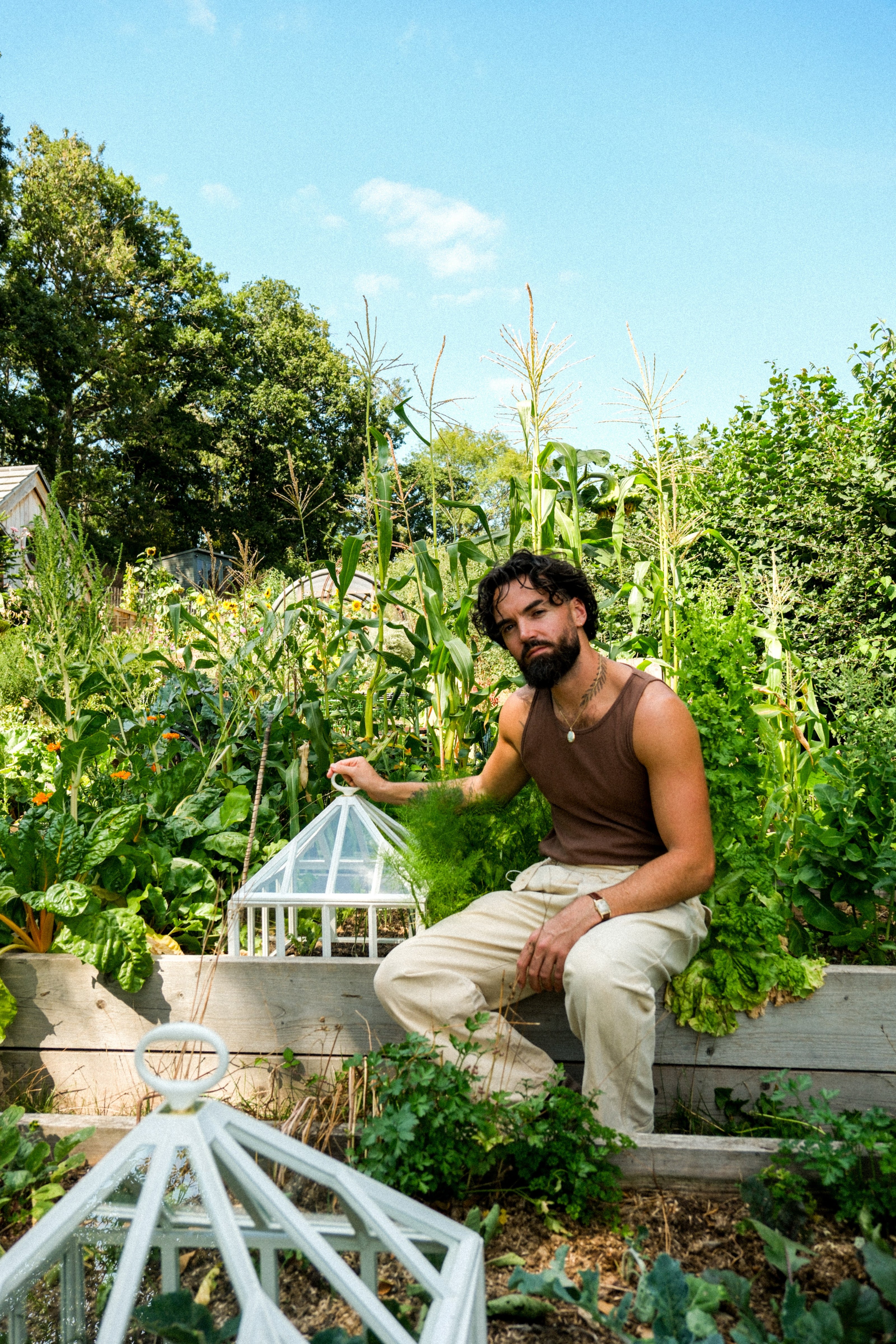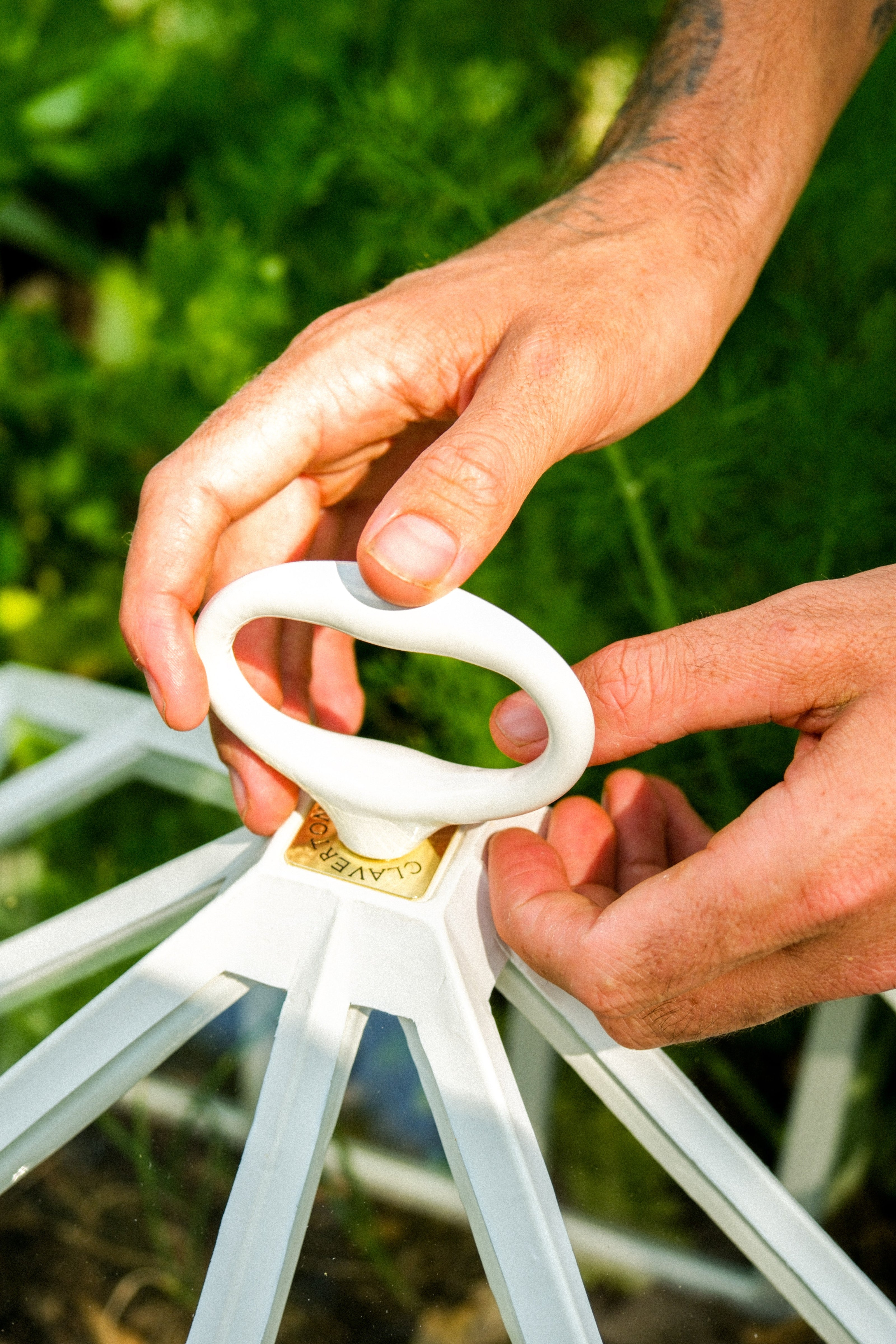In the Garden with: Gaz Oakley
Welsh chef, author, and grower Gaz Oakley is known to his 1.6 million YouTube subscribers for his plant-based cooking: a classically trained chef who traded the heat of professional kitchens for the quiet rhythm of a countryside smallholding. After a decade working in restaurants, Gaz left London during the Covid lockdowns and moved to rural Wales, where he now grows much of his own food, develops plant-forward recipes, and shares his journey towards a slower, more self-sufficient life.
When we speak, he’s just returned from France, where summer heat still lingers over market stalls laden with produce. “The food is so celebrated there,” he says. “It makes you feel connected to a place. I wish we had more of that in the UK - we’re one of the greatest cheese-producing nations in the world, but somehow we forget it.” For Gaz, food and place are inseparable; both deserve care, beauty, and respect.
That philosophy runs through his cooking and into his garden. What began as a way to deepen his connection to the food he prepared quickly became a passion in its own right. “Before lockdown, I’d never grown anything except a few microgreens in my London flat,” he admits. “But I had this feeling, I wanted to get out of the city, to learn how to grow my own food.” Four years later, his garden produces around 85% of what he eats in the summer months.
Not everything thrives, of course. “Every year is different. This season voles got my broccoli, but the tomatoes, melons, and cucumbers have been incredible. You have to take your wins with your losses - that’s nature.” His advice for new growers is to start with five things you buy regularly and learn how to grow them well, adding new crops each year.
It’s a transformation that’s altered more than his plate. “I didn’t realise how disconnected I was before,” he says. “Living in cities, I had all the symptoms of what I call nature deficiency - anxiety, stress, even depression at times. Growing food, foraging, preserving… all those things have eliminated those feelings for me. It’s made me feel whole.”
His approach is practical but underpinned by an instinctive romanticism. Flowers are now as integral to his planting as vegetables - many chosen for their medicinal properties, all for their value to pollinators. “I think my garden has become a safe haven,” he says. “Amongst all the industrial farming around me, it’s a little pocket of biodiversity.” Companion planting, eschewing weed membranes, and slowly phasing out plastics are all part of the picture. “So much in gardening now is plastic - and it piles up. I want to work with materials that last.”
This is where his eye for craftsmanship draws parallels with Claverton Cloches. “When I saw your cloches, they reminded me of old Victorian ones you still sometimes find at flea markets - pieces that last for generations. In the garden, it’s worth investing in beauty and longevity.”
Gaz’s influences extend beyond his own patch. A recent trip to France introduced him to a plastic-free grower whose brassica frames were made from willow and hazel. In Mexico, he explored the ancient Mayan chinampa system - man-made islands in shallow waterways, built up with organic matter and planted intensively. “There’s so much wisdom in these old methods,” he says. “They make you think about how your own ancestors lived and grew food.”
Back in Wales, his plans are growing too: a farm, a physical store, and one day a wellness retreat where visitors can learn to cook, grow, and reconnect with nature. “For me, beauty is part of it,” he says. “A well-laid table, a wicker picnic basket, a cloche protecting a row of winter greens - these things make you feel good. And that’s what life should be about.”
If you’d like to learn more about Gaz and explore his world beyond the garden, visit his website - where he shares recipes, growing tips, and glimpses of life on his Welsh smallholding.

